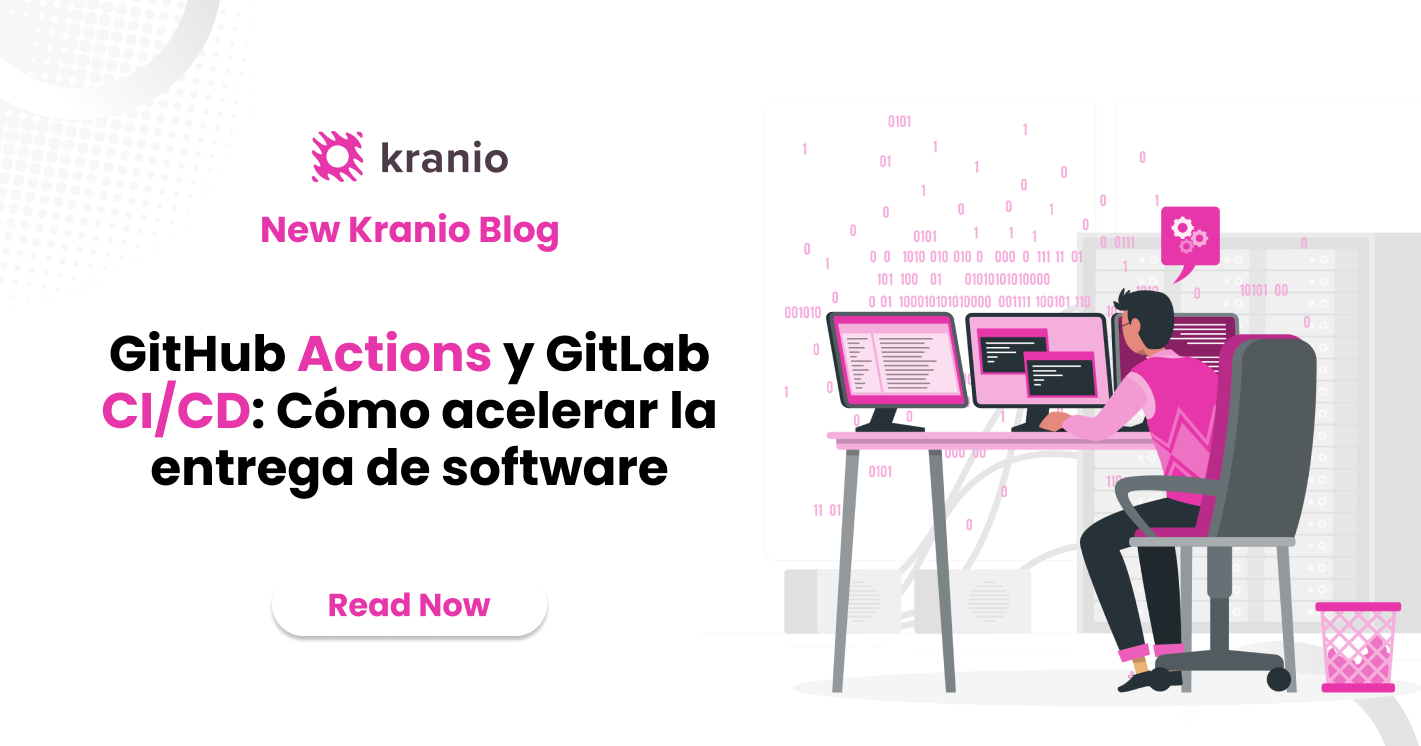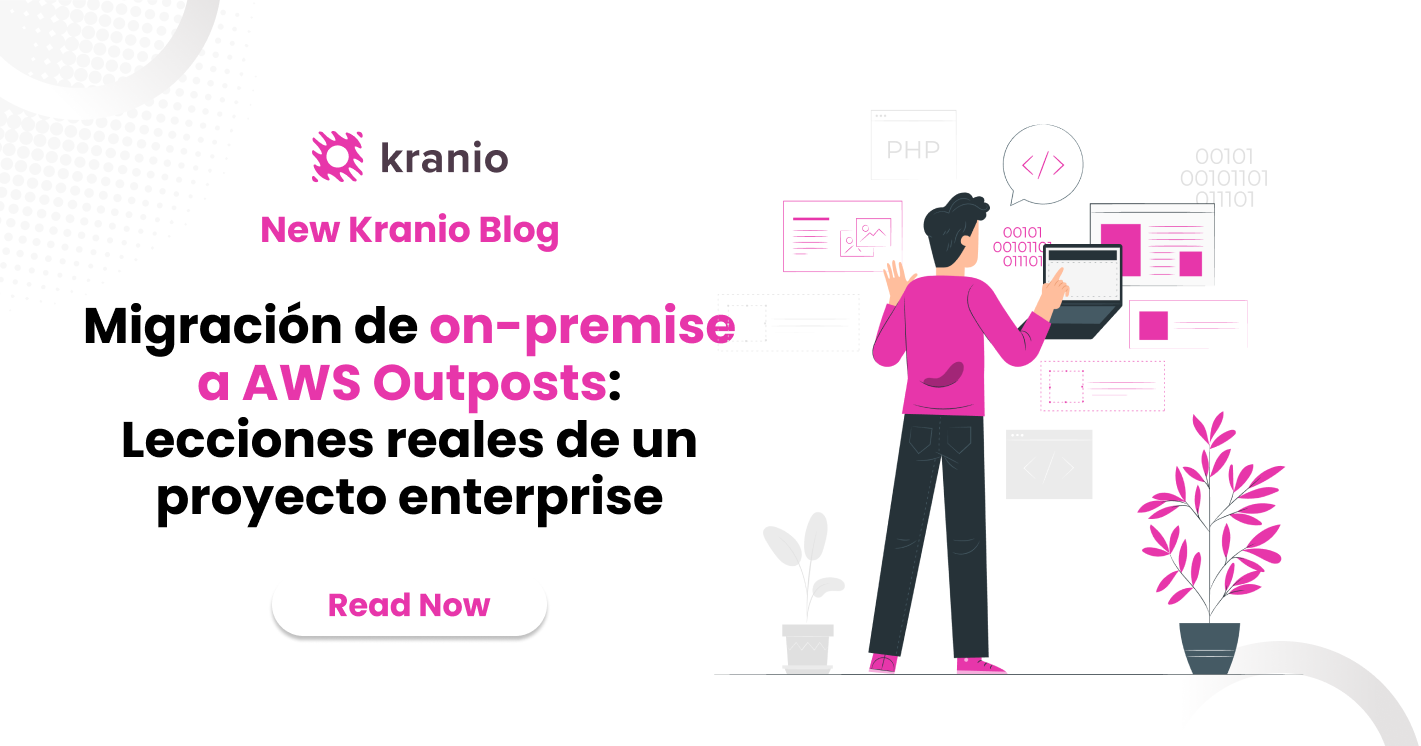3 ️ Cloud Storage and Databases | Data Analytics and Machine Learning with Google Cloud
- Cloud Storage: Types of storage and when to use them.
- Cloud SQL and AlloyDB: Managed relational databases.
- Spanner: The globally scalable database.
- BigQuery: Large-scale data analysis.
- BigQuery and Looker: How to turn data into valuable information.
- Vertex AI: Creation and deployment of Machine Learning models.
- Integration with Gemini for generative artificial intelligence.
One of the fundamental pillars of Google Cloud Platform (GCP) is its focus on data: how to store it, manage it, analyze it and use it to create business intelligence. In this section of the blog, we will discuss the services that GCP offers to achieve this, from object storage to generative artificial intelligence, to databases, data warehouses and analytical tools.
📁 Cloud Storage: Types of Storage and When to Use Them
Google Cloud Storage (GCS) is an ideal object storage system for storing any type of data in a scalable, secure and durable way. It allows you to save static files such as images, videos, documents, backups and large volumes of data for processing.
Exemples:
- Media and entertainment companies: to store and distribute video content across multiple regions.
- Data Science and Biotechnology Companies: where terabytes of genetic sequencing data or medical images are stored.
- Insurance companies: that store claim histories, policies and scanned digital documentation.
%209.00.20%E2%80%AFa.m..png)
Key Benefits:
- Unlimited scalability: GCS allows you to automatically grow as the volume of data increases, without the need to reconfigure the infrastructure.
- High Durability: which ensures that the data is kept intact even in the face of physical or logical failures.
- Availability: GCS allows you to store data in multiple geographical regions, offering multiregional or regional options with automatic replicas.
- Disaster Recovery: Thanks to its automatic replication and the possibility of versioning files, Cloud Storage facilitates recovery strategies in the face of data loss or regional failures. You can configure retention policies, restore previous versions, and set up automatic backups in separate buckets.
- Global access: Data can be accessed from anywhere in the world with low latency if stored in multiregional or bi-regional buckets, thanks to the fact that the data is replicated in multiple geographical locations. In regional configurations, latency may vary depending on the user's location, so it is recommended to align the location of the buckets with the geographical proximity of the data consumers for the best possible performance.
- Advanced Security: All data is encrypted in transit and at rest. Customer Managed Encryption Keys (CMEK) can also be used for greater control.
- Native integration with the GCP ecosystem: Compatible with BigQuery, Dataflow, Vertex AI, AI Platform, Dataproc, etc.
- Version Control and Retention Policies: It allows you to maintain multiple versions of the same file and configure lifecycle rules.
- High cost efficiency: Automatic policies can be set to move files to cheaper storage classes.
- Simplified data transfer: It supports Storage Transfer Service, Transfer Appliance, gsutil and Datastream to facilitate the migration, synchronization and replication of data from multiple sources, including relational databases, on-premise environments and other clouds.
🛢️ Cloud SQL and AlloyDB: Managed relational databases
🔹 Cloud SQL
Fully managed service for MySQL, PostgreSQL and SQL Server.
Ideal for traditional applications such as CRMs, ERPs, e-commerce and backend systems.
📌 Advantages:
- Automatic backups and high availability.
- Easy vertical scalability with the ability to increase CPU, RAM and storage without restarting the instance.
- Fully managed: no need to worry about patching, replication, or network configurations.
- Native integration with GCP: Can be directly connected to tools such as Compute Engine, App Engine, Cloud Functions, BigQuery, and Vertex AI.
- Advanced security: includes authentication with IAM, data encryption at rest and in transit, and configurable firewalls.
- Integrated monitoring: allows you to observe database performance with Cloud Monitoring and personalized alerts.
🔹 AlloyDB for PostgreSQL
High-performance business database with full PostgreSQL compatibility. Designed for mixed loads, it combines optimized performance with advanced artificial intelligence and integrated analytics capabilities.
Advantages:
- Faster than traditional PostgreSQL in transactional loads.
- Faster in analytical loads thanks to its vectorized memory engine.
- AlloyDB AI: native capabilities to execute generative AI models directly on relational data.
- Separate storage and compute architecture that allows you to scale both independently.
- Intelligent cache based on machine learning that predicts and preloads frequent queries.
- Built-in high availability with fast recovery from failures.
- Optimized migration from standard PostgreSQL with automated tools.
- 100% compatible with PostgreSQL, allowing you to take advantage of existing libraries, extensions and knowledge.
Exemples:
- Companies in the retail sector: for real-time inventory analysis and simultaneous order processing with embedded analytics.
- Health platforms: where millions of patient records are processed with predictive dashboards.
- Fintechs: who needs transaction analytics and risk models based on the same relational database. High-performance and fully compatible with PostgreSQL. It combines optimized performance with advanced artificial intelligence and integrated analytics capabilities.
%209.01.06%E2%80%AFa.m..png)
🌍 Spanner: Globally scalable database
Spanner combines transactional consistency with horizontal scalability, making it one of the most advanced and reliable databases for distributed architectures.
Advantages:
- Global distribution with precise synchronization, allowing consistent reads and writes across multiple regions.
- An SLA (Service Level Agreement) of up to 99.999% in its Enterprise Plus version, ensuring continuous availability even in the face of regional failures.
- No need for manual sharding, simplifying the design of complex databases.
- Automatic replication and version control to ensure data consistency between nodes
- Horizontal scalability without interruption, allowing for capacity growth without redesigning the database.
- Integration with analysis tools such as BigQuery through data federation, without the need to move data between systems.
- Advanced security with default encryption and granular access policies with IAM.
- Support for different dialects such as Google SQL and PostgreSQL, which facilitates adoption for teams with previous experience in other relational databases.
When to use it:
- Financial apps, banking apps, global SaaS, and large scale online games.
- Databases with high concurrency and strong transactional requirements.
- Systems that require multiregional distribution without sacrificing consistency.
- Applications that must grow rapidly without rewriting the logic of accessing data.
- Cases where users are globally distributed and low latency is required anywhere on the planet.
💡 Example: Spotify uses Spanner to support the global scalability of its catalog and music playback.
📊 BigQuery: Large-scale data analysis
BigQuery is a highly scalable serverless and multicloud data warehouse that allows you to execute SQL analytical queries on large volumes of data in seconds, without the need to manage infrastructure. It is designed to meet the needs of modern analytics, combining storage, processing and machine learning on a single platform.
Advantages:
- High processing speed even with data volumes that reach petabytes.
- Serverless architecture, eliminating the need to provision or maintain clusters.
- Flexible pricing: on demand (payment per consultation) or reserved capacity (for frequent inquiries).
- Direct integration with Cloud Storage, Looker, Vertex AI, Dataflow, Pub/Sub and external tools.
- Optimized SQL engine with support for partitioning, clustering, user-defined functions, and embedded ML models.
Exemples:
- E-commerce companies: analyze customer behavior and predict conversion rates in real time.
- Telecom companies: they process network events for predictive maintenance.
- Governments and NGOs: analyze large volumes of public data to make political or health decisions.
Additional functions:
- Big Lake for unified data from multiple sources and formats, allowing consistent queries between Cloud Storage and BigQuery storage.
- BigQuery Omni for multicloud analysis: allows you to execute queries on data stored in AWS and Azure without having to physically move it to GCP, which is ideal for distributed architectures or hybrid strategies in enterprise environments.
📈 BigQuery + Looker: From Data to Decisions
Looker powers data analysis in BigQuery by allowing visualization, exploration and creation of interactive dashboards with a user-friendly interface and without the need for advanced knowledge in SQL.
Combined benefits:
- It allows decisions based on real-time data thanks to direct integration with BigQuery.
- LookML allows you to model data and define centralized metrics that can be reused throughout the organization.
- Users can explore data on their own, creating queries and visualizations without relying on the technical team.
- Generative AI integrated with Gemini to create automatic reports and perform conversational analysis with natural language.
Exemples:
- Sales teams: they visualize revenues by region, performance by product and the evolution of KPIs.
- Digital marketing: analyze campaign ROI in real time with data from BigQuery.
- Customer Support: analyze interactions and tickets to optimize response times and detect common trends.
Use cases:
- Sales, marketing, customer service, operations, SaaS analytics.
🤖 Vertex AI: Create and deploy Machine Learning models
Vertex AI is Google Cloud's core platform for building, training, deploying and monitoring enterprise-scale Machine Learning models. It offers tools for both data scientists and developers with no experience in ML.
Advantages:
- Centralized environment for managing the full lifecycle of models ML and MLops.
- Supports Custom models and AutoML for classification, regression, computer vision, natural and tabular language.
- High integration with other GCP services: BigQuery, Dataflow, Notebooks, Cloud Storage, Cloud Functions.
- Reproducible and managed pipelines with Vertex AI Pipelines.
- Explanability of models (Explainable AI): It allows you to identify and visualize which characteristics or variables of the data set most influence the model's predictions. This facilitates audits, builds trust in the behavior of the model and improves understanding by non-technical users or stakeholders.
- Real-time inference with scalable endpoints: Models can be deployed on secure endpoints that automatically scale based on demand. This allows you to consume predictions from other applications immediately and with low latency, without the need to manage infrastructure.
- Model Garden: allows you to discover, test, customize and deploy pre-trained AI models. It's useful for tasks such as computer vision, natural language processing, classification, or segmentation. The models can be fine-tuned with their own data and quickly brought to production from Vertex AI.
Exemples:
- Banking: training fraud detection models with BigQuery and deployment with Vertex AI.
- Retail: Predicting product demand by location using historical data.
- Health: automatic classification of medical images for prioritization of diagnoses.
Key integrations:
- BigQuery ML for running models on analytical data.
- Managed notebooks for data science.
- Cloud Functions for automated real-time inference.
🧠 Integration with Gemini: Generative Business Artificial Intelligence
Gemini is Google's family of foundational models that power generative AI experiences in GCP services. It's integrated into tools such as Vertex AI, BigQuery, Looker, AppSheet and Google Workspace.
Advantages:
- Multimodal models (text, images, code, audio) trained by Google DeepMind.
- Contextualized answers with access to business data hosted on BigQuery, AlloyDB, or Cloud Storage.
- High customization with tone control, domain, response structure and enterprise security.
- Prompt Engineering simplified using Vertex AI Studio and Agent Builder.
Common use cases:
- Intelligent virtual assistants for customer service integrated into corporate websites.
- Automatic creation of presentations, email responses and management reports using Gemini in Google Workspace.
- Generating insights within Looker from natural language for non-technical users.
- Automation of content generation for e-commerce from product catalogs.
Exemples:
- Retail: generation of product descriptions and automatic answers to frequently asked questions.
- Education: creation of interactive teaching material based on the student's level.
- Finances: preparation of risk summaries, regulatory reports and financial sentiment analysis.
GCP offers a complete and perfectly integrated suite that covers the entire data management cycle: from its secure storage, through optimized databases, to large scale analysis, to the training and deployment of advanced AI models. This integration not only eliminates friction between tools, but it also accelerates the development of intelligent and adaptable solutions in real time.
With services such as BigQuery, Looker, Vertex AI and Gemini, organizations can transform raw data into actionable value, from operational reports to personalized predictions and generative assistants. This technological convergence improves decision-making, increases productivity and enables new forms of innovation driven by data, all within the secure, scalable and flexible ecosystem of Google Cloud.
Ready to transform your business with the power of Google Cloud?Optimize your data, accelerate your innovation and make smarter decisions.Contact us today and discover how to take your digital strategy to the next level. 🚀











.png)
.png)
